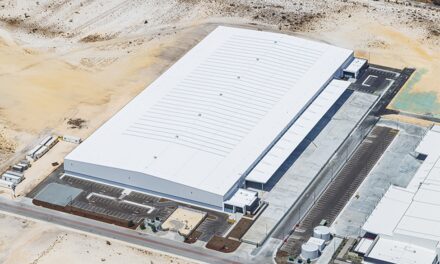
Australia Post: Parcels bring in the cash
Australia Post has flagged further investment in its logistics arm to propel its domestic and international expansion.
The parcels and logistics division is now the corporatised entity’s biggest money-spinner, responsible for a big part of the group’s 2006-07 net profit of USD 400.7 million, a rise of 8.7 per cent on the previous year’s USD 367.9 million.
Of the pre-tax profit of USD 561.7 million, parcels and logistics for the second year in a row was the biggest contributor, with USD 255.9 million. Letters, traditionally the lifeblood of Australia Post, had a pre-tax profit of USD 160 million, down 8.4 per cent.
Total revenue from the three core businesses – letters, parcels and retail – rose by 4 per cent to a record USD 4.71 billion.
The postal corporation will pay its shareholder, the Federal Government, a dividend of USD 296.9 million on top of the USD 474.9 million it paid in taxes and charges last year.
Australia Post’s chairman, David Mortimer, said cash flow in the business was very strong at USD 670 million. After the payment of dividends, more than USD 100 million would be available for investment, particularly in logistics.
Parcels and logistics include not just the sending of parcels: the group is increasingly expanding its broader logistics arm domestically and internationally.
The acquisition of JR Haulage, now rebadged Post Logistics Australia, has given the group a solid domestic platform in traditional logistics.
Growth in domestic parcel volume was due to the boom in online shopping, especially of products such as wine, electronic goods, CDs and DVDs.
Mr Mortimer said the expansion of the parcels service overseas owed a lot to the alliance with postal bodies in China, Hong Kong, Japan, Korea, the United States Britain and Spain.
Australia Post has forged a partnership with China Post called Sai Cheng Logistics, which is a stepping stone to a long-term aim of becoming an “essential partner” in Asia-Pacific logistics.
The volume of domestic letters rose by 1.9 per cent, an extra 93.1 million letters. Mr Mortimer said the number of personal and business letters had fallen, with the broader rise driven by direct and unaddressed mail (such as advertising material), up 8 per cent and 11.4 per cent respectively.
Pre-tax profit from the retail network – 4,449 postal outlets, including 2,553 in rural locations – was a flat USD 86.6 million, with identity services, including passports and licences, a new and growing income source.











